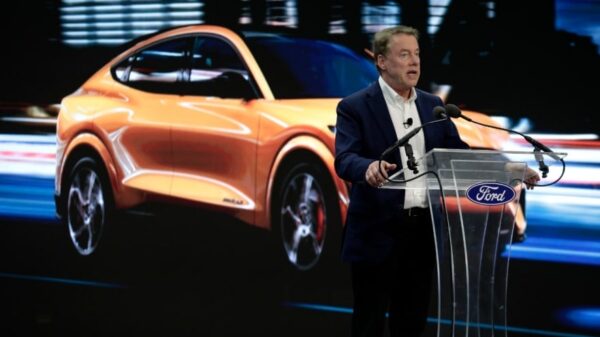Ford Motor to build $3.5bn BlueOval Battery Park Michigan in Marshall
Ford Motor Company will construct the BlueOval Battery Park Michigan, a new $3.5 billion lithium iron phosphate (LFP) battery facility in Marshall, Michigan to become the first automaker to manufacture both nickel cobalt manganese (NCM) and LFP batteries in the US.
The country’s first automaker-backed LFP battery facility is anticipated to diversify Ford Motor’s US supply chain and provide customers with a second battery technology within the company’s electric vehicle (EV) lineup.
BlueOval Battery Park Michigan will be a part of a fully-owned subsidiary of Ford Motor and will add around 35 gigawatt hours (GWh) per year of lithium iron phosphate battery capacity for the company in the US.
The EV battery manufacturing plant, with an option for additional capacity in the future, will initially power around 400,000 future Ford EVs.
Jim Farley — Ford Motor president and CEO said: “To get as many Ford EVs to customers as possible, we’re the first automaker to commit to build both NCM and LFP batteries in the United States.
“We’re delivering on our commitments as we scale LFP and NCM batteries and thousands, and soon millions, of customers will begin to reap the benefits of Ford EVs with cutting-edge, durable battery technologies that are growing more affordable over time.”
Ford Motor has partnered with China’s battery manufacturer Contemporary Amperex Technology (CATL), which has operated 13 facilities in Europe and Asia.
Under the arrangement, CATL will provide lithium iron phosphate battery cell knowledge and services to Ford’s wholly-owned subsidiary to manufacture the battery cells.
The BlueOval Battery Park Michigan initially will employ 2,500 people, with the Ford Motor Company first production slated for 2026.
Since 2019, Ford Motor and its battery technology collaborators have announced an investment of $17.6 billion, including this $3.5bn, in EV and battery production in the US.
Ford Motor aims to achieve net zero emissions across its vehicles, operations, and supply chain globally by the year 2050.
Discover more from Business-News-Today.com
Subscribe to get the latest posts sent to your email.


